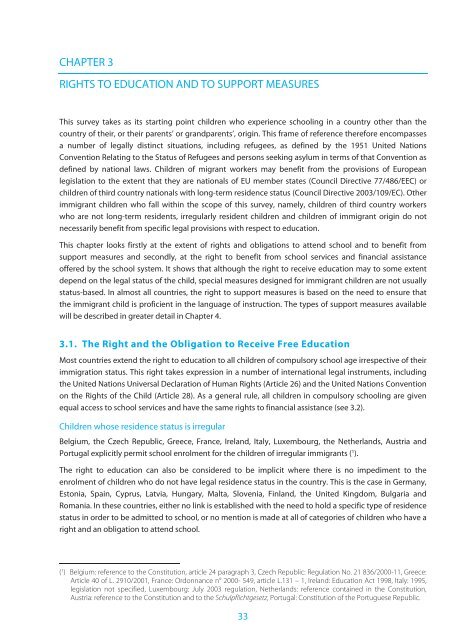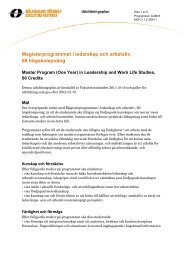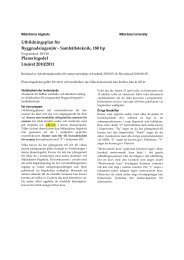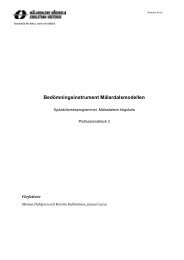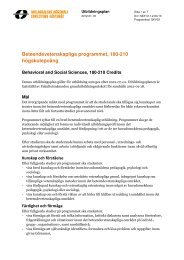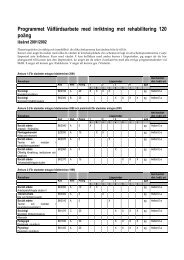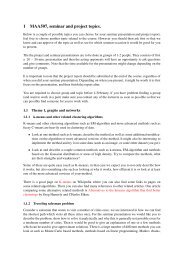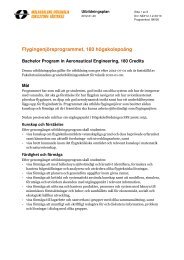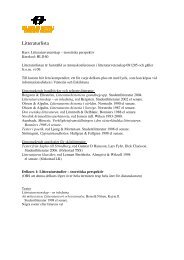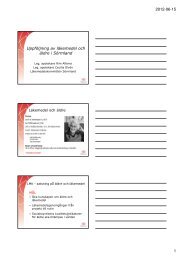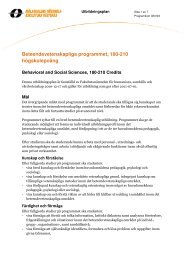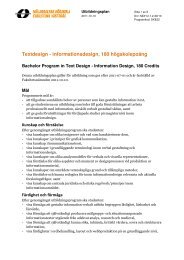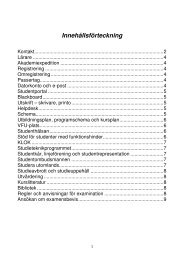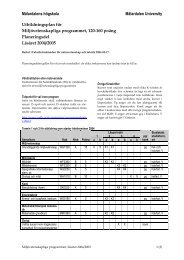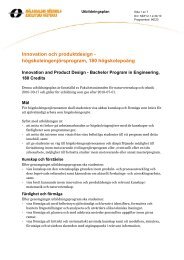Integrating Immigrant Children into Schools in Europe
Integrating Immigrant Children into Schools in Europe
Integrating Immigrant Children into Schools in Europe
Create successful ePaper yourself
Turn your PDF publications into a flip-book with our unique Google optimized e-Paper software.
CHAPTER 3RIGHTS TO EDUCATION AND TO SUPPORT MEASURESThis survey takes as its start<strong>in</strong>g po<strong>in</strong>t children who experience school<strong>in</strong>g <strong>in</strong> a country other than thecountry of their, or their parents’ or grandparents’, orig<strong>in</strong>. This frame of reference therefore encompassesa number of legally dist<strong>in</strong>ct situations, <strong>in</strong>clud<strong>in</strong>g refugees, as def<strong>in</strong>ed by the 1951 United NationsConvention Relat<strong>in</strong>g to the Status of Refugees and persons seek<strong>in</strong>g asylum <strong>in</strong> terms of that Convention asdef<strong>in</strong>ed by national laws. <strong>Children</strong> of migrant workers may benefit from the provisions of <strong>Europe</strong>anlegislation to the extent that they are nationals of EU member states (Council Directive 77/486/EEC) orchildren of third country nationals with long-term residence status (Council Directive 2003/109/EC). Otherimmigrant children who fall with<strong>in</strong> the scope of this survey, namely, children of third country workerswho are not long-term residents, irregularly resident children and children of immigrant orig<strong>in</strong> do notnecessarily benefit from specific legal provisions with respect to education.This chapter looks firstly at the extent of rights and obligations to attend school and to benefit fromsupport measures and secondly, at the right to benefit from school services and f<strong>in</strong>ancial assistanceoffered by the school system. It shows that although the right to receive education may to some extentdepend on the legal status of the child, special measures designed for immigrant children are not usuallystatus-based. In almost all countries, the right to support measures is based on the need to ensure thatthe immigrant child is proficient <strong>in</strong> the language of <strong>in</strong>struction. The types of support measures availablewill be described <strong>in</strong> greater detail <strong>in</strong> Chapter 4.3.1. The Right and the Obligation to Receive Free EducationMost countries extend the right to education to all children of compulsory school age irrespective of theirimmigration status. This right takes expression <strong>in</strong> a number of <strong>in</strong>ternational legal <strong>in</strong>struments, <strong>in</strong>clud<strong>in</strong>gthe United Nations Universal Declaration of Human Rights (Article 26) and the United Nations Conventionon the Rights of the Child (Article 28). As a general rule, all children <strong>in</strong> compulsory school<strong>in</strong>g are givenequal access to school services and have the same rights to f<strong>in</strong>ancial assistance (see 3.2).<strong>Children</strong> whose residence status is irregularBelgium, the Czech Republic, Greece, France, Ireland, Italy, Luxembourg, the Netherlands, Austria andPortugal explicitly permit school enrolment for the children of irregular immigrants ( 1 ).The right to education can also be considered to be implicit where there is no impediment to theenrolment of children who do not have legal residence status <strong>in</strong> the country. This is the case <strong>in</strong> Germany,Estonia, Spa<strong>in</strong>, Cyprus, Latvia, Hungary, Malta, Slovenia, F<strong>in</strong>land, the United K<strong>in</strong>gdom, Bulgaria andRomania. In these countries, either no l<strong>in</strong>k is established with the need to hold a specific type of residencestatus <strong>in</strong> order to be admitted to school, or no mention is made at all of categories of children who have aright and an obligation to attend school.( 1 ) Belgium: reference to the Constitution, article 24 paragraph 3, Czech Republic: Regulation No. 21 836/2000-11, Greece:Article 40 of L. 2910/2001, France: Ordonnance n° 2000- 549, article L.131 – 1, Ireland: Education Act 1998, Italy: 1995,legislation not specified, Luxembourg: July 2003 regulation, Netherlands: reference conta<strong>in</strong>ed <strong>in</strong> the Constitution,Austria: reference to the Constitution and to the Schulpflichtgesetz, Portugal: Constitution of the Portuguese Republic.33


